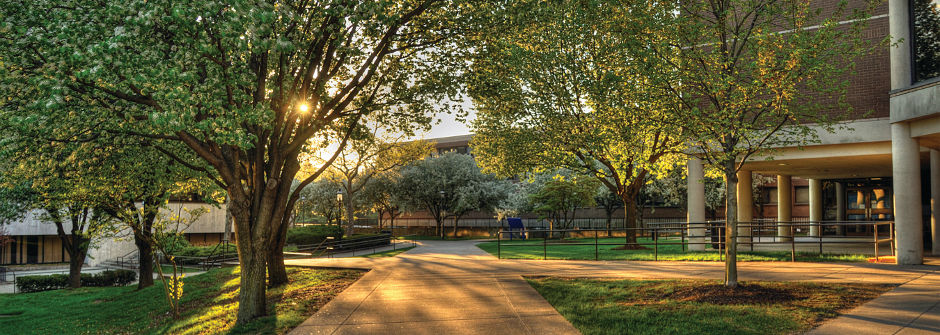
Mission and Purpose
From its founding in 1856 as Seton Hall College to the present day, Seton Hall has been dedicated to the vision of its founder, Bishop James Roosevelt Bayley, as "a home for the mind, the heart, and the spirit". This vision is apparent in the University Mission Statement, the Academic Vision and the Institutional Statement on Diversity, Equity, and Inclusion, which together articulate the institutional goals at the foundation of the University assessment plan.
Meaningful assessment continuously (1) evaluates and (2) informs improvements to the University’s performance relative to its Mission, its Academic Vision and Student Learning Outcomes, and Institutional Statement on Diversity, Equity, and Inclusion, and all other unit goals.
Commitment to Assessment and Guiding Principles
The leadership of Seton Hall University is committed to fostering a culture of meaningful assessment and continuous improvement. This culture permeates all areas of the University, including academic programming, student services, operational facilities, and administrative and support services, and each college incorporates this assessment ethos into its practices. The University Assessment Plan is built on the principles that assessment should:
- Promote the institutional culture and Mission;
- Be integrated with and inform the regular, ongoing work of the University
- Draw from multiple sources of data to create a multi-faceted evaluation
- Align with standards and goals for benchmarking over time
- Look at process and not just products, understanding that both are important
- Be part of a continuous review and improvement cycle that "closes the loop" by implementing changes based on assessment results
- Involves a variety of stakeholders to encourage multiple perspectives
- Be committed to diversity, equity, and inclusion in all forms
- Improve the quality of the student experience
Harvest Our Treasures
Seton Hall's current Strategic Plan, "Harvest our Treasures" prioritizes academic excellence throughout all five of its goals. Goal 2, in particular, "focuses on supporting faculty by strengthening academic quality, research and scholarship, and enhancing equity and inclusion guided by principles embedded in the Strategic Plan" and mandates the existence of a "Committee on academic quality and success outcomes." Improving assessment throughout the University is part of the Strategic Plan, and the University regularly assesses its implementation of the Strategic Plan with a Steering Committee, a conference, and other means.
Historical Context
While participation in formal assessment may extend back even further, especially in our programs governed by external disciplinary accreditors, Seton Hall’s formally organized and centralized assessment efforts date back to at least the late 1990s. The first University Assessment Committee was composed of representatives from the faculty and administration, including representatives from the Provost’s Office and from the University’s Office of Institutional Research; and the committee worked toward increasing awareness of the burgeoning role of outcomes assessment in regional accreditation, guiding campus discussions, arranging workshops by national experts and working with specific departments and programs to increase the number of faculty who were adept at and active in outcomes assessment. This committee continues to the present with a steering committee and a larger University group with representation from all academic programs and various administrative offices. The committee has continuously been led by one of the Associate Provosts because it is respected as a crucial responsibility of the Division of Academic Affairs. For the past seven years, the committee has also included an appointed faculty liaison, with some support from the Provost.
The assistance and insight of the University’s Office of Institutional Research has also been a consistent thread, with formal representation by IR on the steering committee itself. Part of the effort of this committee has been to monitor and gather annual assessment reports from the range of programs at the University and to review them for basic elements, including learning outcomes, strength of the data, and effective use of the results for program improvement. The University has provided innovative supports for stronger assessment work, such as a recurring program, sponsored by our office of Teaching, Learning and Technology, to provide mini-grants for assessment innovations, and for several years (temporarily suspended during the early part of the pandemic but to be restored in 2022), a peer review session during which assessment liaisons read and provide constructive criticism of the assessment reports from a different discipline. The same peer group also regularly gathers for presentations by faculty on departmental assessment efforts as well as assessment projects and other topics of relevance presented by administrative colleagues.
Along with these efforts to encourage innovative assessment, another important task of the committee is recognizing and publicizing excellence in assessment. Noteworthy among our programs is a continuous history of intense assessment work by the English Department, including a First-Year Writing Program that has sustained continuous innovation since the 1980s, and an assessment program in the School of Business in which alumni and other business leaders evaluate student team projects; this latter program has been the subject of multiple publications (most recently as a chapter in Exemplars of Assessment in Higher Education: Diverse Approaches to Addressing Accreditation Standards (Souza & Rose, Eds., 2021) and won awards as a best assessment practice from AACSB as well as the CHEA (Council on Higher Education Accreditation) as an Outstanding Institutional Practice in Student Learning Outcomes.
